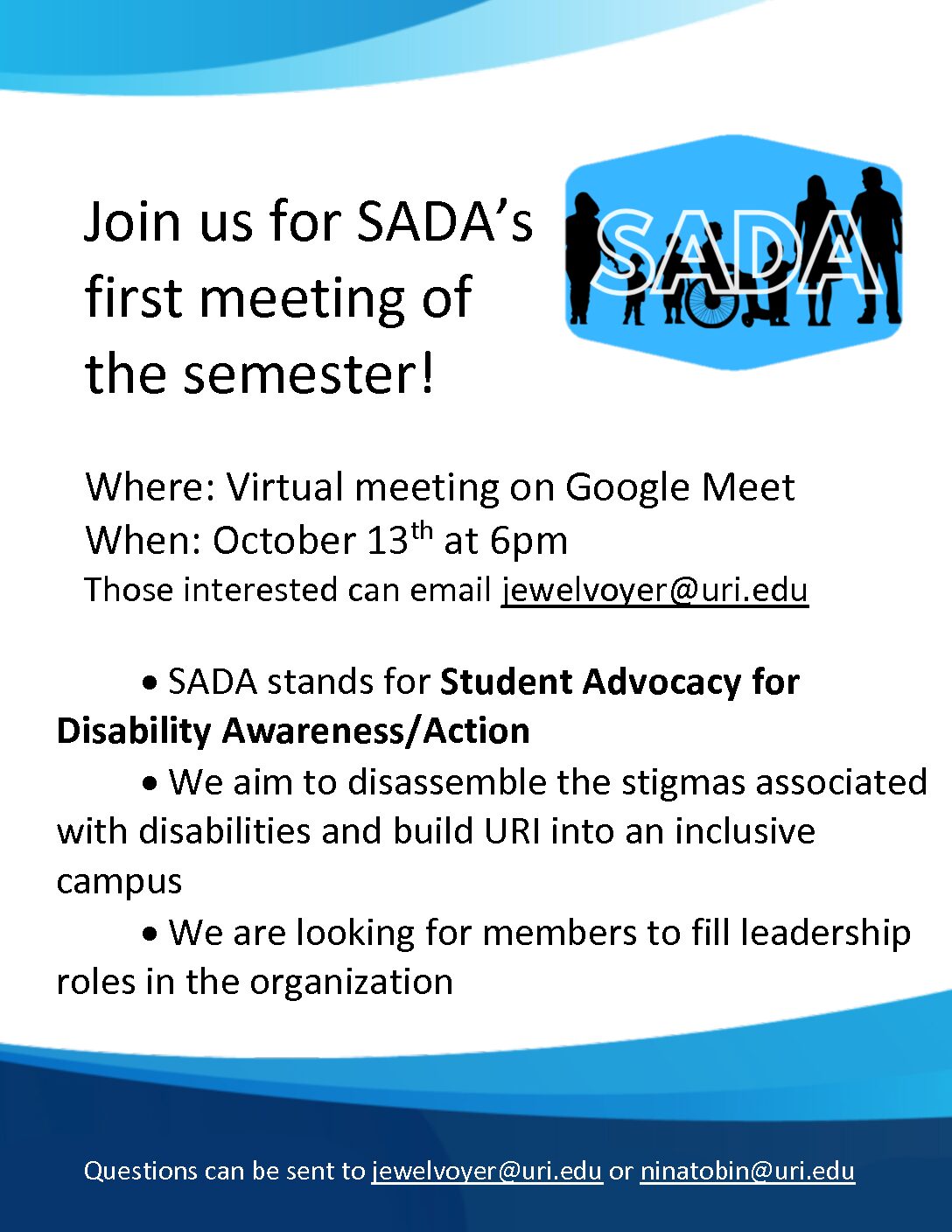A new student organization, SADA, is advocating for students with disabilities. PHOTO CREDIT: Student Advocacy for Disability Awareness/Action
The Student Advocacy for Disability Awareness/Action (SADA) is a new student-run organization at the University of Rhode Island that is aiming to “disassemble the stigmas associated with disabilities and build URI into an inclusive campus.”
Jewel Voyer, a senior at URI double majoring in biological sciences and molecular neuroscience, started this organization to give students with disabilities a voice and a space to feel comfortable and included.
Voyer said that she started the organization because it is important to back up student voices that are often overlooked or ignored.
“Students may feel more comfortable sharing information with their peers rather than a staff member, and they may feel more inclined to voice their personal concerns as well,” Voyer said.
It was hard to start this organization last year with COVID-19 restrictions as it had to take place on Zoom and members could not meet in person.
The first official meeting will be Wednesday, Oct. 13 at 6 p.m. on Google Meet. The purpose of the meeting will be to get everyone together and discuss what Voyer has been working on with Disability, Access and Inclusion (DAI) over the past couple months. A set schedule on when they will take place will be decided after the initial meeting, once leaders and members finalize their plans. Elections for leadership roles will most likely take place at the end of the meeting. SADA is looking for new members to fill positions including president, vice president, treasurer and secretary.
Nina Tobin, a coordinator for the DAI department at URI, will be one of the advisors for SADA. She has worked in the field of special education for about twenty years, such as inclusion and accessibility in academic settings.
In regards to helping Voyer start this program, Tobin says she will “go by her lead, whatever she needs. I want to be responsive to that, and any things that we can do to make those events more accessible, to publicize them, as far as the DAI department goes, and to support the founding of the organization in a successful way.”
Having an organization like this at the University of Rhode Island will benefit students with and without disabilities because it will create a community for a group of students who are disabled that may feel stigmatized, left out or not included within larger groups.
“[I would] absolutely encourage [students] to show up and see what it’s all about,” Tobin said. “I think there are rare times in life where you get to be a part of something that is starting and get to be a part of the process of designing and filling out and structuring what an organization is going to be like, and especially if it represents something that has to do with your rights, your experience, your ability to connect with community and feel that you have partners and the benefits of numbers.”
To better the lives of individuals on campus, as Voyer explained, URI can start a conversation to build inclusivity.
Voyer said that students can be allies for disabled students through attending meetings, listening to students who voice their concerns and coming up with ideas as a group to help create a positive impact on the lives of students with disabilities around campus.





